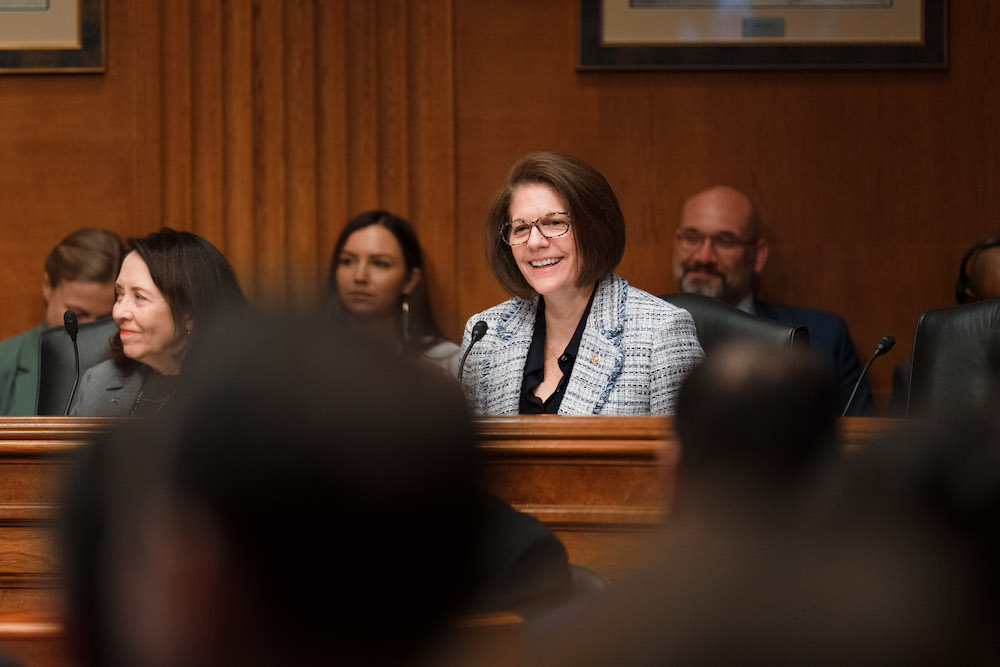
- Details
- By Brian Edwards
- Policy and Law
For months, investors have been scrambling to recover millions spent on so-called “tribal tax credits” — financial instruments that federal authorities say did not actually exist.
The growing scandal has come under federal investigation and entangled a publicly traded oil company and a sitting IRS commissioner. It has also prompted renewed calls in Congress for a long-overdue policy fix: giving tribes the same tax authority and tools that states enjoy.
Leading that effort is U.S. Sen. Catherine Cortez Masto (D-Nev.), who, alongside Sen. Lisa Murkowski (R-Alaska), recently introduced the Tribal Tax and Investment Reform Act of 2025. The bipartisan legislation would extend tax-exempt bonding authority to tribal governments, create $175 million in annual tribal development credits, and update decades-old provisions in the Internal Revenue Code that often leave tribes out of federal programs.
Cortez Masto says the urgency of reform is underscored by the abuse of tribal identity in the recent tax credit scandal, which she’s investigating with Senate Finance Chair Ron Wyden (D-Ore.). In an interview this week with Tribal Business News, she discussed the proposed reforms, the failure of IRS enforcement, and why Native issues remain personal to her — even when they’re buried in tax law.
This interview has been edited for clarity and brevity.
Your new bill is about tax parity for tribes, but it’s arriving alongside this major scandal involving so-called tribal tax credits. What does this moment say about how Indian Country is treated under the tax code?
It shows exactly why we need clearer, simpler tax policy for tribes. Right now, the tax code is so complicated and inconsistent when it comes to tribes that it creates opportunities for bad actors. These scammers used tribal identity — without any real connection to tribes — to market fake credits. And most people, including in Indian Country, didn’t even know it was happening. That’s why I introduced the Tribal Tax Investment Reform Act. It gives tribes the same treatment as states under the tax code, and it makes it easier for investors to distinguish between legitimate programs and scams.
Your bill gives tribes real tools — like bonding authority and tax credit access. What are the barriers to getting it passed, especially right now?
There’s real interest from both sides of the aisle, especially from people who sit on the Senate Committee on Indian Affairs. But we’ve got work to do. We need to educate our colleagues — explain why there’s a lack of parity, how it impacts tribal communities, and why reforms like this are overdue. Honestly, the fact that scammers were able to convince investors to buy fake tribal tax credits is exactly why we need this legislation.
Do you think Congress should go further — like protecting tribal names and identities, similar to the Indian Arts and Crafts Act?
Yes, I think there’s more we should be doing, and that’s something we’re discussing in the Senate Committee on Indian Affairs. The issue of protecting tribal identity — not just in arts and crafts but in business, in tax policy, in representation — it’s real. And it's part of a bigger picture. During COVID, I saw how often tribes were excluded or had to go through states to access federal funds. That’s why we pushed for direct carve-outs. And that’s where this tax parity bill came from — conversations with tribes in Nevada and across the country who want equal footing, not handouts.
One of the problems in this scandal was lack of oversight. The IRS has an Office of Indian Tribal Governments, but it’s under-resourced. Will your bill fund enforcement or oversight?
The bill itself is focused on creating parity and opportunity — but you're right. We absolutely need stronger enforcement at the IRS and Treasury. Under the previous administration, we allocated funding for fraud enforcement and investigations, including in tribal communities. But this administration has started to roll that back. I don’t understand why. Fighting fraud should be a priority. And when it comes to tribal tax issues, it’s even more important because the lack of clarity invites abuse.
Do you trust Billy Long — the newly confirmed IRS commissioner — to enforce these laws fairly, given his ties to the companies involved in the tribal tax credit scheme?
No, I don’t. He couldn’t even admit that there’s an ethical conflict. He was paid by companies promoting these fake credits. Now he’s in charge of the agency that’s supposed to investigate them. It’s unacceptable. He should be recused from anything involving these scams. Instead, he’s in a position to protect the very companies that paid him. That’s why I opposed his confirmation. I raised these concerns in the Senate Finance Committee, and I’m going to keep raising them.
You've taken on issues like tribal courts, health care, and now tax law. What draws you personally to Native issues?
It started when I was attorney general of Nevada. I worked closely with tribes and saw firsthand how the federal government too often failed to show up — in funding, in resources, in honoring its trust responsibilities. So when I came to the Senate, I knew I had to use every oversight tool and every legislative opportunity to fight for tribal sovereignty and equity. This isn’t just about tax law. It’s about doing right by Indian Country at every level — from health care to justice to economic development.
